Bart De Clercq becomes first rider to race with artificial hip
'I'm really happy to be back in the bunch' says Belgian after nightmare year of injury
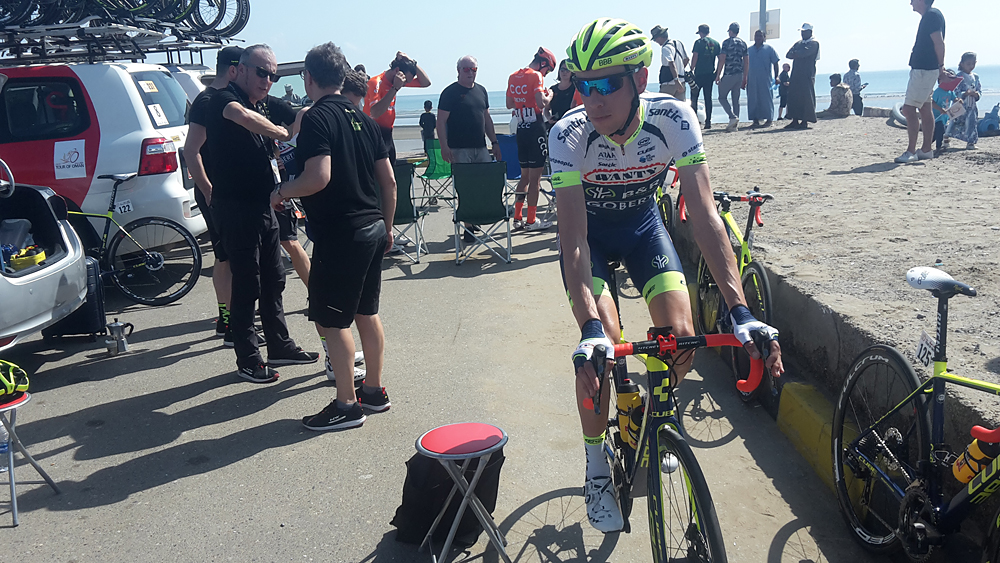
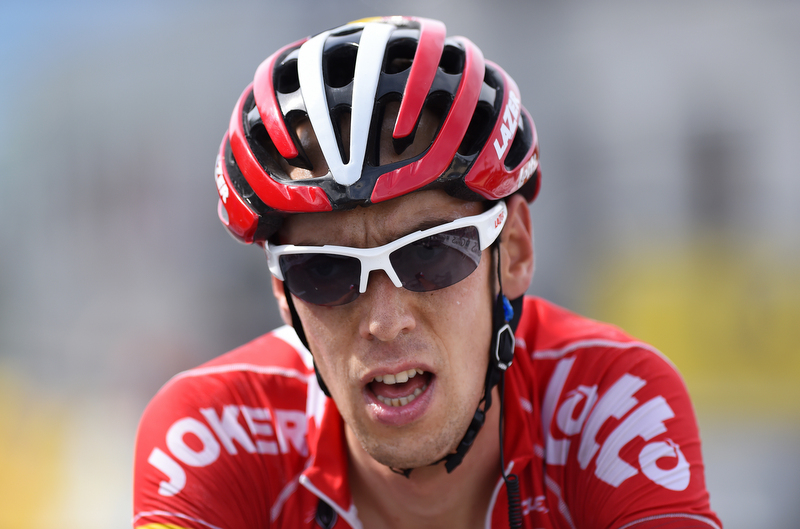
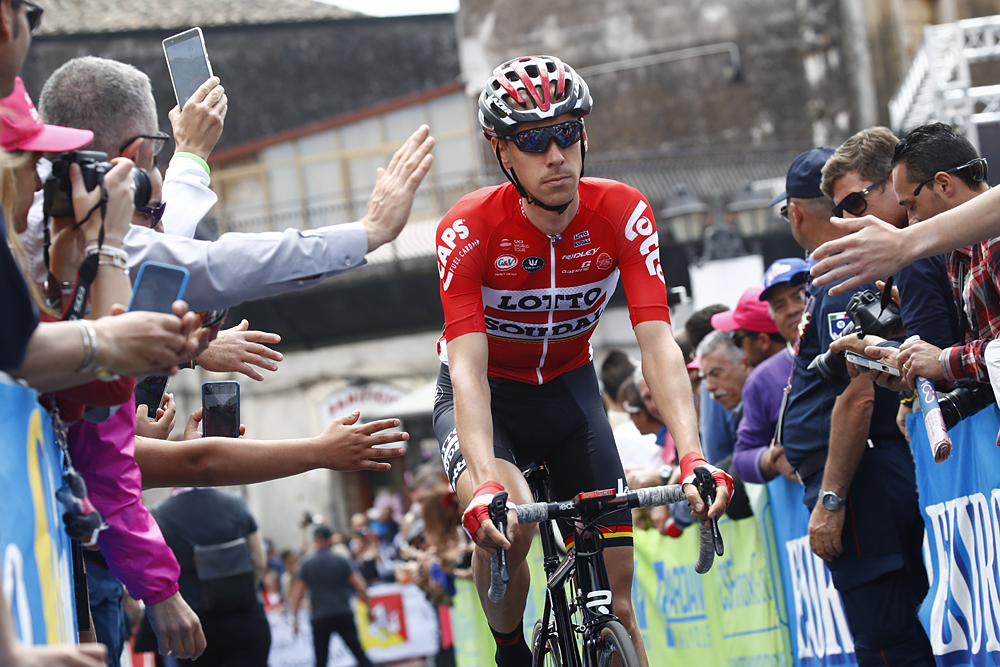
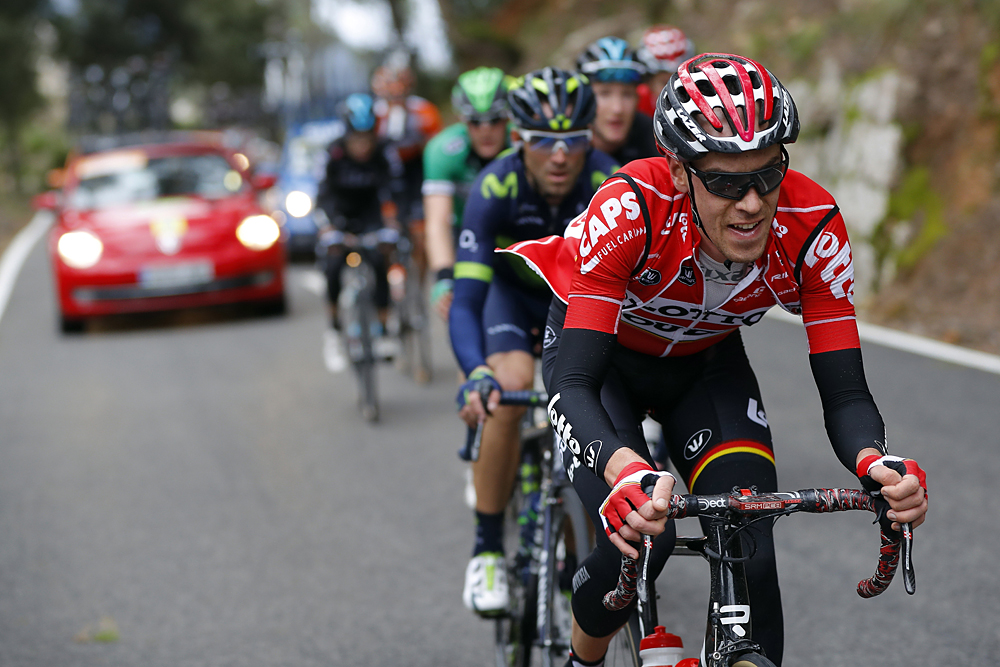
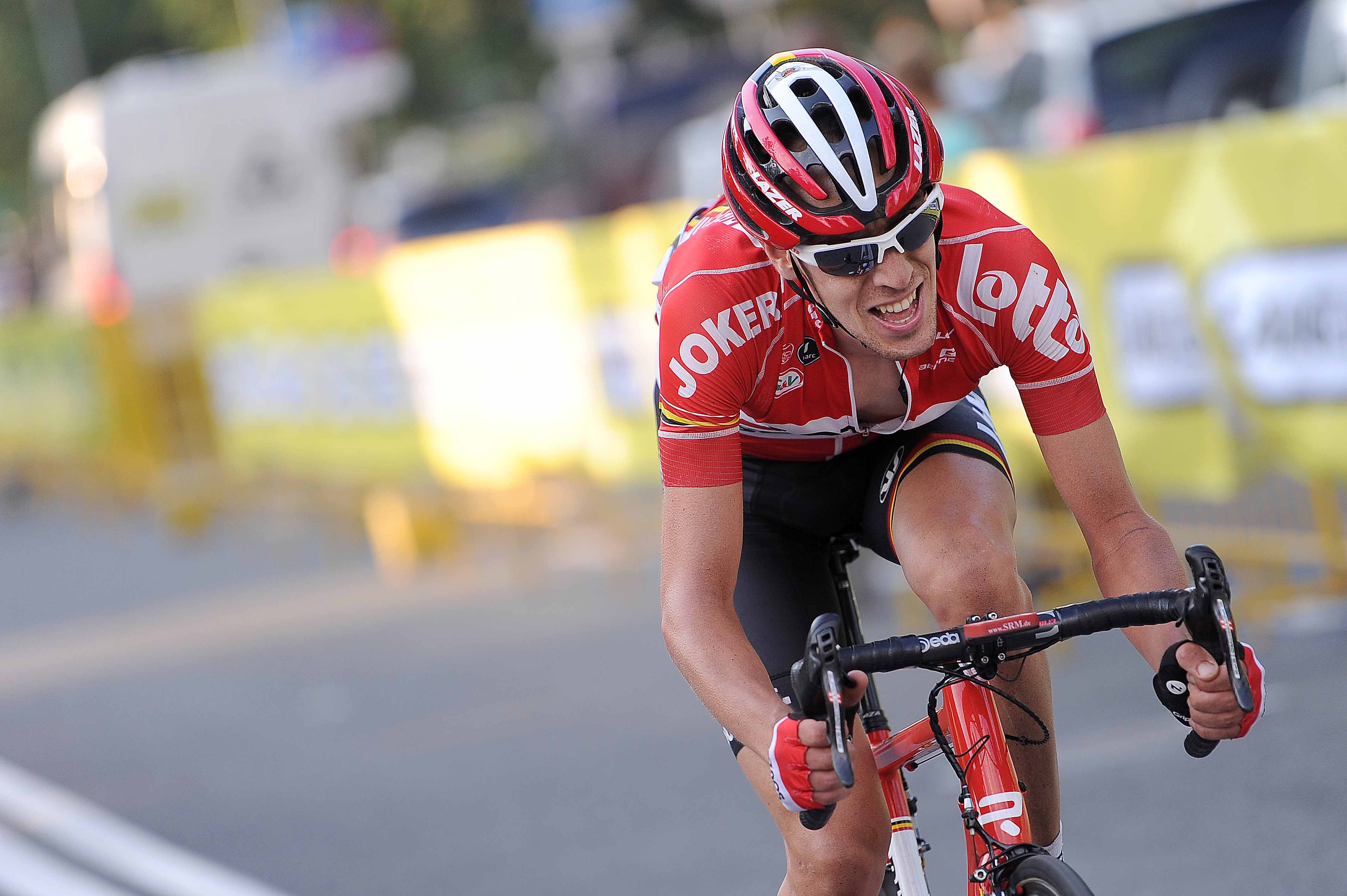
The opening stage of the Tour of Oman might have seen Alexander Kristoff extend his record victory tally with a rapid sprint on the Suhar Corniche, but away from the headlines there was another story, and another slice of history being made, as Bart De Clercq (Wanty-Gobert) became the first professional cyclist to race with an artificial hip.
The 32-year-old Belgian went through the old pre-race rituals on Al Sawadi Beach on Saturday morning, applying sun lotion and pinning on his numbers, with a childlike grin on his face. It was the first time he’d done that in almost 18 months.
In the intervening period, he'd struggled with an injury that threatened to ruin not just his career but his quality of life.
The crash that fractured his hip, he recalls, was a 'silly' one. Having just transferred from Lotto Soudal to Wanty Groupe Gobert, he was out for a causal ride with a friend in early January last year and was doing a U-turn at slow pace when his front wheel slipped out. It was a classic case of a slow crash doing – somewhat counter-intuitively – more damage than a high-speed fall, where momentum can carry you over the ground rather than into it.
"It was a stupid crash but with serious consequences. The impact was really located at one place, and the wrong place. I landed with the complete impact on my hip," De Clercq told Cyclingnews in Oman.
"I remember it clearly. I lay down, I tried to stand up, I couldn't stand up, I immediately went down again on the floor, then I wanted to move to the side of the road – one more metre – but that wasn't possible because of the pain. Then I remember every second on my way to the hospital. I think I'll remember it for a few more years yet."
De Clercq was fitted with an artificial hip – a chunk of metal at the top of his left leg – on October 16, exactly four months ago. His rehabilitation and route back to the pro peloton has been relatively seamless since then, but beforehand it was anything but.
Get The Leadout Newsletter
The latest race content, interviews, features, reviews and expert buying guides, direct to your inbox!
The hip replacement was actually the third time he had gone under the knife and, as he struggled to walk without pain, it was something of a last resort.
"The day of crash itself, they tried to fix the broken part of the hip with screws. I still had my own hip. In the end, it didn't work out. Also, the cartilage around the femoral head was broken and almost disappeared. I had a second surgery in June last year and it didn't work out like it should have. Then I decided at the end of September to go for artificial hip, which I preferred to avoid, but in the end it was not possible.
"The main reason was quality of life. Even walking and going through life was not comfortable. Walking was a real task, and after 100 metres I would have to sit down to recover. For daily life, it was the only option I had left."
"I want to get my old level back"
In stark contrast to the early attempts to address the injury, everything about the hip replacement has, despite the complexity and scale of the procedure, run very smoothly.
"After my first surgery, I had to lie on the bed for almost two months, not doing anything, but after the hip replacement I could already be on the home trainer two days later – not riding but moving the pedals for five minutes," De Clercq said.
"After two weeks I could walk with one crutch and after one month I was back on my bike outside. All the months before were going really slowly and falling back again, but now it's going fast, and in one straight line, which is good for the motivation."
Despite having a chunk of metal for a joint that's constantly in use on the bike, De Clercq insists there's no major difference to when it was made of bone, and no reason why he can't perform at the highest level again. Floyd Landis had a hip resurfacing operation in 2006, before returning to race in 2009 following his doping ban, but De Clercq is the first rider to race having undergone a full hip replacement procedure.
"If I was footballer or a marathon runner, that would be different, but actually cycling is the best thing to do for an artificial hip," he said. "For moment, there's no real difference to before. I still feel a bit of difference in power from my left leg to the right, but that's just muscle mass, and that's normal. Then for the shape, I'm missing a few per cent still but this will come week by week and race after race."
De Clercq finished 98th on the opening stage of the Tour of Oman, safely in the peloton. It was his first race for Wanty, and just finishing it was a small victory in itself.
"I said to myself, if I'm dropped it's fine, and if I can follow, even better. I always had in mind try to be back on the bike again in the bunch and today we are at this moment, so I'm really really happy."
The reintegration into the peloton was a big moment, but more of a milestone than a destination; De Clercq is determined not just to race again but to return to the height of his powers.
The crowning achievement of his career so far is his stage win at the 2011 Giro d'Italia, and his only other pro victory came at the 2015 Tour de Pologne, though he has peppered the top 15 of several stage races, including the Vuelta a España.
"I must admit there have been periods it wasn't so easy. Actually, they were always really short, the moments of, not depression but bad moments, and I always found back my motivation quickly. One thing I had in mind was 'I don't want to stop like this so I at least want to try to get back my old level. If I didn't try, I couldn't live with that," De Clercq said.
"The engine is still the same – they only replaced some parts. Everything else should be like before so I see no reason why I wouldn't be able to get back to my old level. Also, I feel in training that I'm progressing still. Even now I'm already at a decent level, so I'm pretty confident everything will turn back to how it was before."
Oman, for De Clercq is about enjoying being back in the bunch and getting stronger for the season ahead. He is determined to rediscover his old form, and there's no lack of ambition when he insists he wants to line up at the Tour de France in July, where he would support the team’s leader, Guillaume Martin.
"The team is selected for the Tour and I will try to get in the best shape during that period. It's up to the team, of course they have to take the eight best riders, but I'll do everything to be in that eight and earn my selection. If I'm not 100 per cent I will say 'OK, it's for the others', but anyway it's a motivation to try and be 100 per cent for the Tour."
Patrick is a freelance sports writer and editor. He’s an NCTJ-accredited journalist with a bachelor’s degree in modern languages (French and Spanish). Patrick worked full-time at Cyclingnews for eight years between 2015 and 2023, latterly as Deputy Editor.
